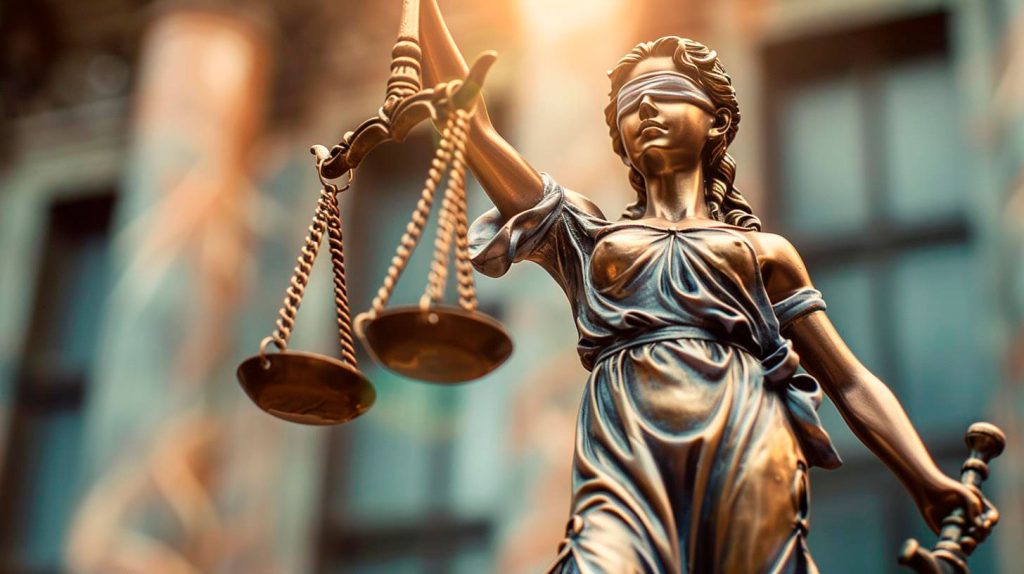
Seeking Legal Assistance for Credit Repair Issues
If you find yourself struggling with credit repair problems, it may be time to seek legal assistance.
Why Legal Assistance?
When it comes to credit repair, navigating through the complex laws and regulations can be overwhelming. That’s where legal assistance comes in. Hiring a lawyer who specializes in credit repair can help you understand your rights, negotiate with creditors, and dispute inaccurate information on your credit report. A lawyer can also provide legal protection if you are being harassed by debt collectors.
According to a recent study, 1 in 5 Americans have errors on their credit reports that could impact their credit scores. These errors can lead to higher interest rates, denial of credit, and even difficulty securing employment. Seeking legal assistance can help you correct these errors and improve your credit score.
The Benefits of Legal Assistance
One of the main benefits of seeking legal assistance for credit repair is that lawyers have the expertise and experience to navigate the credit repair process effectively. They can review your credit report, identify inaccuracies, and dispute them on your behalf. This can save you time and energy, as well as increase your chances of success.
Another benefit of hiring a credit repair lawyer is that they can provide legal protection against abusive debt collectors. If you are being harassed by debt collectors, a lawyer can help you understand your rights under the Fair Debt Collection Practices Act and take legal action if necessary.
Additionally, a lawyer can provide personalized advice and guidance on how to improve your credit score. They can help you develop a plan to pay off debts, negotiate with creditors, and establish healthy financial habits. This can not only improve your credit score in the short term but also set you up for long-term financial success.
Choosing the Right Lawyer
When seeking legal assistance for credit repair, it’s essential to choose the right lawyer for your needs. Look for a lawyer who specializes in credit repair and has a proven track record of success. Check their credentials, reviews, and testimonials from past clients to ensure they are reputable and trustworthy.
It’s also important to consider the cost of legal assistance. Most credit repair lawyers charge a flat fee or hourly rate for their services. Be sure to discuss fees upfront and ask about payment plans or options for low-income individuals. Remember, investing in legal assistance for credit repair can save you money in the long run by improving your credit score and financial health.
Seeking legal assistance for credit repair can be a smart decision if you are struggling with credit repair issues. A lawyer can help you navigate through the complexities of credit repair laws, dispute inaccuracies on your credit report, and provide legal protection against debt collectors. With their expertise and guidance, you can improve your credit score, achieve financial stability, and build a brighter financial future.
Don’t let credit repair issues hold you back. Take control of your finances and seek legal assistance today.
Steps to Take to Repair Your Credit After a Check Bounces
In this guide, we’ll walk you through the process of repairing your credit after a check bounces.
1. Understand Why the Check Bounced
The first step in repairing your credit after a check bounces is to understand why it happened in the first place. Checks can bounce for a variety of reasons, including insufficient funds in your account, a mismatched signature, or a technical error. By identifying the cause of the bounce, you can take appropriate steps to prevent it from happening again in the future.
2. Contact the Payee
Once you’ve identified why the check bounced, the next step is to contact the payee and apologize for the inconvenience. Explain the situation and offer to make alternative arrangements to settle the debt. By addressing the issue proactively and demonstrating your willingness to resolve it, you can potentially prevent further damage to your credit.
3. Make Good on the Payment
After speaking with the payee, make sure to follow through on your commitment to settle the debt. Whether it’s making a direct payment, issuing a new check, or arranging a payment plan, fulfilling your financial obligations will not only repair your credit but also demonstrate your reliability and trustworthiness moving forward.
4. Monitor Your Credit Report
It’s crucial to monitor your credit report regularly after a check bounces to ensure that the negative information is accurately reported. If you spot any errors or inconsistencies, dispute them with the credit bureaus to have them corrected. By keeping a close eye on your credit report, you can track your progress in repairing your credit and identify any potential issues that may arise.
5. Build Positive Credit History
To offset the negative impact of a bounced check on your credit score, focus on building positive credit history. Make timely payments on your existing debts, keep your credit card balances low, and avoid applying for new credit unnecessarily. By demonstrating responsible financial behavior, you can gradually improve your credit score and mitigate the effects of the bounced check.
- Pay your bills on time
- Keep your credit card balances low
- Avoid closing old accounts
- Limit new credit applications
6. Seek Professional Help
If you’re struggling to repair your credit after a check bounces, consider seeking professional help from a credit repair expert or a financial advisor. These professionals can provide personalized advice and guidance to help you navigate the credit repair process effectively. With their expertise, you can develop a tailored strategy to restore your credit and achieve your financial goals.
Repairing your credit after a check bounces may seem daunting, but with the right approach and determination, you can overcome this setback and rebuild your creditworthiness. By taking proactive steps to address the issue, make good on your payment, and focus on building positive credit history, you can repair the damage caused by the bounced check and improve your credit score over time. Remember, it’s never too late to take control of your financial future and secure a brighter tomorrow.
For expert legal advice and assistance in navigating credit repair processes, contact our team of experienced lawyers today. We specialize in helping individuals resolve credit-related issues and achieve financial stability. Don’t let a bounced check define your creditworthiness – take the necessary steps to repair your credit and regain control of your financial well-being.
Tips for Communicating with Creditors and Collection Agencies
Here are some tips to help you navigate these challenging conversations:
1. Know Your Rights
Before contacting a creditor or collection agency, familiarize yourself with the Fair Debt Collection Practices Act (FDCPA). This federal law outlines what debt collectors can and cannot do when attempting to collect a debt. Understanding your rights can help you assert yourself and prevent abusive or harassing behavior.
2. Stay Calm and Collected
When communicating with creditors or collection agencies, it’s important to remain calm and collected. Getting emotional or aggressive can escalate the situation and make it more difficult to reach a resolution. Take a deep breath, stay focused on the facts, and calmly state your position.
3. Keep Records
Document all communication with creditors and collection agencies, including dates, times, and names of representatives you speak with. This information can be valuable if there are disputes or discrepancies later on. Keep copies of any written correspondence as well.
4. Be Honest and Transparent
It’s important to be honest and transparent when discussing your financial situation with creditors or collection agencies. Trying to deceive or withhold information is likely to backfire and can damage your credibility. Explain your circumstances truthfully and provide any documentation to support your claims.
5. Negotiate Payment Terms
If you’re unable to pay the full amount owed, try to negotiate a payment plan with creditors or collection agencies. Many creditors are willing to work with you to set up a manageable repayment schedule. Be prepared to offer a reasonable proposal and stick to the agreed-upon terms.
6. Seek Legal Advice
If you’re struggling to resolve a debt issue on your own, consider seeking legal advice from a qualified attorney. A lawyer can provide guidance on your rights and help you navigate the legal complexities of debt collection. Having legal representation can give you peace of mind and protect you from unfair practices.
7. Know When to Assert Your Rights
If you believe a creditor or collection agency is violating the FDCPA or engaging in unlawful behavior, don’t hesitate to assert your rights. You have the right to dispute debts, request validation of the debt, and report any violations to the Consumer Financial Protection Bureau (CFPB). Stand up for yourself and take action if necessary.
8. Stay Informed
Stay informed about your rights and responsibilities as a consumer. Keep up-to-date on changes to consumer protection laws and regulations that may impact your dealings with creditors and collection agencies. Knowledge is power when it comes to protecting yourself from unfair debt collection practices.
Effective communication with creditors and collection agencies is essential for resolving debt issues and maintaining your financial well-being. By knowing your rights, staying calm and collected, keeping records, being honest and transparent, negotiating payment terms, seeking legal advice when needed, asserting your rights when necessary, and staying informed, you can navigate the complexities of debt collection with confidence. Remember, you have the right to fair treatment and respectful communication in all interactions with creditors and collection agencies.
Understanding Your Legal Rights Regarding Credit Reporting Errors
The Importance of Accurate Credit Reporting
Credit reports play a crucial role in determining your creditworthiness and financial stability. Lenders use this information to assess your credit risk when you apply for loans, credit cards, or mortgages. Even employers and landlords may review your credit report to evaluate your reliability and trustworthiness. Therefore, any errors on your credit report could potentially harm your chances of securing credit or even affect your employment prospects.
According to a recent study by the Federal Trade Commission (FTC), 20% of consumers have identified errors on their credit reports. These errors can range from simple mistakes in personal information to more serious inaccuracies in account details or payment history. Regardless of the nature of the error, it is crucial to address it promptly to prevent any negative consequences.
Your Rights Under the Fair Credit Reporting Act
The Fair Credit Reporting Act (FCRA) is a federal law that protects consumers’ rights in relation to their credit reports. Under the FCRA, consumers have the right to dispute any inaccuracies on their credit reports and request that they be corrected. Credit reporting agencies are required to investigate these disputes and correct any errors within 30 days.
If a credit reporting agency fails to investigate or correct an error on your credit report, you have the right to file a lawsuit against them for damages. The FCRA also allows consumers to request a free copy of their credit report once a year from each of the major credit reporting agencies (Equifax, Experian, and TransUnion) to review for inaccuracies.
Steps to Take When You Identify a Credit Reporting Error
If you discover an error on your credit report, it is essential to take action immediately to rectify the situation. The following steps can help you navigate the process of disputing a credit reporting error:
- 1. Obtain a copy of your credit report from each of the three major credit reporting agencies.
- 2. Review each report carefully for any inaccuracies or errors.
- 3. Document the errors with supporting evidence, such as bank statements or payment records.
- 4. Contact the credit reporting agency in writing to dispute the errors and request corrections.
- 5. Follow up with the credit reporting agency to ensure that the errors have been resolved.
Benefits of Legal Assistance in Resolving Credit Reporting Errors
While consumers can dispute credit reporting errors on their own, seeking legal assistance can provide several benefits. An experienced lawyer can guide you through the complex process of disputing credit report errors, ensuring that your rights are protected and that the errors are corrected promptly. Legal assistance can also be invaluable if you need to take legal action against a credit reporting agency that has failed to address the errors on your report.
According to a report by the Consumer Financial Protection Bureau (CFPB), consumers who sought legal assistance in resolving credit report errors were more likely to have those errors corrected and receive compensation for any damages incurred as a result of the inaccuracies. Additionally, lawyers specializing in consumer protection laws can provide expert advice on how to prevent future credit reporting errors and protect your financial interests.
Understanding your legal rights regarding credit reporting errors is essential for safeguarding your financial well-being and ensuring that you are treated fairly by credit reporting agencies. By staying informed about the FCRA and taking proactive steps to address any inaccuracies on your credit report, you can minimize the potential negative impacts of credit reporting errors on your financial standing. Seeking legal assistance in resolving credit report errors can provide added protection and support in navigating the dispute process effectively.













Bouncing a check can have legal consequences, such as being reported to check verification companies or facing legal action from the payee. It’s important to take responsibility for the bounced check and work towards repairing your credit to avoid any further repercussions.
One tip is to regularly check your credit report for any errors or inaccuracies that could be impacting your score. You can also work with credit repair professionals to help expedite the process and improve your credit more efficiently.
Yes, with diligent credit repair efforts, you can improve your credit score over time and become eligible for loans and credit cards again. It’s important to be proactive in repairing your credit to prevent any long-term negative effects.
Repairing your credit after a check bounce can be a major hassle, but it’s important to take action to protect your legal rights. It’s crucial to stay on top of repairing your credit as soon as possible to avoid any negative repercussions in the future.
It’s important to review your rights under the Fair Credit Reporting Act, which allows you to dispute any inaccuracies on your credit report. You also have the right to add a brief statement explaining the circumstances surrounding the bounced check.
One common mistake is ignoring the issue and hoping it will go away on its own. It’s crucial to take proactive steps to repair your credit, such as paying off the bounced check and working towards improving your credit score through responsible financial behaviors.
Yo, I totally bounced a check last month and now my credit score is tanking. How can I fix this mess and make sure my legal rights are protected?
So, if I bounce a check and it affects my credit score, can I still qualify for a loan or credit card in the future?
Hey, I heard that there are laws to protect consumers who have bounced checks. Can someone explain what my legal rights are in this situation?
Don’t stress, there are steps you can take to repair your credit after a check bounce. Start by contacting the bank to negotiate a repayment plan and try to pay off the balance as soon as possible to minimize the impact on your credit score.
What are some common mistakes people make when trying to repair their credit after a bounced check?
I bounced a check a while back and now I’m trying to repair my credit. Any tips on how to speed up the process?
Hey, does anyone know if there are any legal consequences for bouncing a check and damaging your credit score?